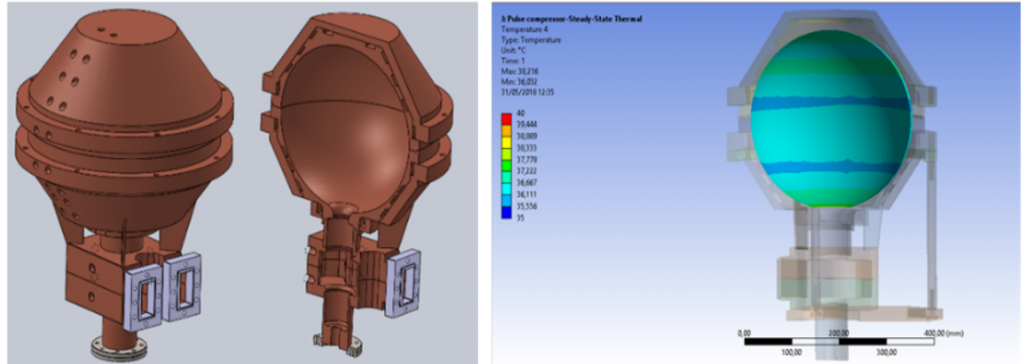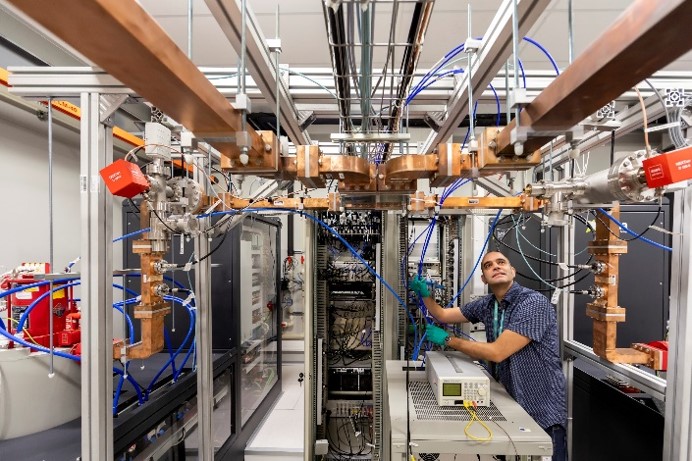Capability
Design, assembly and testing of radio frequency and microwave components for accelerators
The High-Gradient (HG) Radio Frequency (RF) laboratory for medical applications is an installation with the objective of study and characterize high-gradient cavities.
Obtaining smaller linear accelerators are key to the new cancer therapies devel-opments through particles like prontons or electrons. Using high-gradient accel-erator cavities allows for the construction of more compact and lower-cost accelerators.
This laboratory and the know-how acquired by our workers give us major capabilities to perform complete RF component and waveguides design, from electromagnetic to mechanical, thermal and ultra-high vacuum design.


Tecnology
The laboratory has two klystron type devices that generate the pulsed RF signal of 3GHz and 15M which are fedding with solid state modulators. These modulators produce pulses of 150 KV and 100 A with a pulse frequency of 400 Hz, thus reducing the test time in a very significant manner. The control and data acquisition system, developed by IFIC, is capable of synchronizing the signals at that frequencyand sending them through the waveguides to the accelerator cavity.
The High-Gradient (HG) Radio Frequency (RF) laboratory team has already carried out the full developments of different waveguides components that are ready for serial production.
Business sectors of application
Particle accelerators for medical physics
Of interest to
- High-precision machining
- Electron beam welding
- Ultra-high vacuum fabrication
- Development of electronic systems of data acquisition
- Improvement and distribution of RF and microwaves devices

